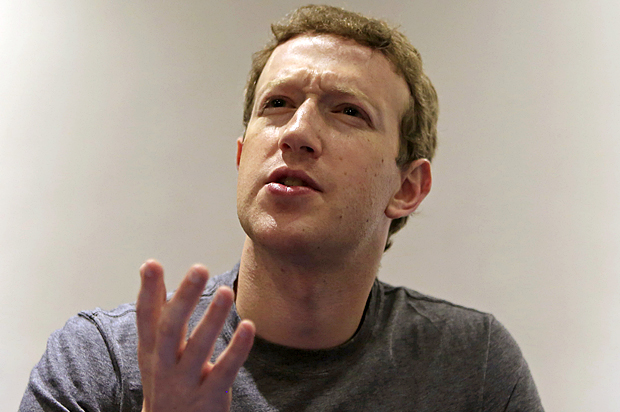What does the future look like? Businesses that talk to each other without human being involved. A satellite owned by a huge corporation that already knows a huge amount about us. A plane that stays up in the air for two months, beaming down a service that allows people to buy things all day and all night.
If we encountered these ideas in a science-fiction novel, we’d be chilled to the bone. But the digital revolution has brought us so many good things, and the people in charge of the major companies are often so persuasive, that they often seem exciting and fun. And maybe they will be.
But these plans, just announced Tuesday by Facebook’s Mark Zuckerberg, should make people at least a little uncomfortable. At a conference in San Francisco, the T-shirted CEO came out against Donald Trump, mostly for the mogul’s anti-immigration policies, and he’s receiving a shot of good press for his statements in favor of tolerance and building bridges. His company has also designed a video camera that will allow him to capture the first steps of his daughter with 17 lenses. Sounds good!
But he also reminded us of why so many people don’t trust him. From the Wall Street Journal:
At its annual F8 conference in San Francisco, Facebook showed developers how to build so-called chatbots in the app to field customer-service questions, give weather updates and help people order goods, without requiring a person on the other end of the conversation.
Some services like this, of course, already exist.
… Many companies using messaging apps, though, rely on people to field the questions, and users expect prompt replies. Chatbots could help expand the number of businesses that can interact with Messenger’s 900 million users.
That sounds great – unless you actually like talking to human beings, or if you’re one of the people who field customer-service questions for a living.
Zuckerberg and other digital-age pioneers talk about the humanitarian reasons to link the world up to the Internet. “I look at a lot of the big world problems, and I see them as problems of connecting people and giving them opportunities,” he told Wired. He almost certainly believes this.
But his plan to build a solar-powered plane and beam Internet service down to earthlings who lack it? It’s a pretty transparent way to make sure that Facebook can complete its world domination plan by linking even low-tech countries into the social-networking site. Facebook’s market capitalization is about $314 billion and Zuckerberg is now worth, according to Forbes, $48.2 billion: He and the company didn’t get this big by thinking only in terms of spreading opportunities. The satellite designed to plug in sub-Saharan Africa? If a foreign government designed something that powerful, we’d be losing our minds.
It’s not that Zuckerberg is evil, from what we can tell. It’s that there are no limits on the company’s growth. Normally, it’s good to have businesses expand: This produces jobs, economic expansion, and various services. But when companies earn their income by turning people’s relationships into products, and start moving into the stratosphere in order to convince people to click “like” buttons, we should be worried. Once those 360-degree baby videos go up on Facebook, and the company decides it can make more money by transmitting them all over the world on special satellites, who’ll stop them? Once chatbots spread enough that people who used to get jobs answering phones are no longer employed, what will replace them?
You don’t have to be anti-capitalist or paranoid to wonder where we’re going with this. Let’s be proud Zuckerberg opposes Trump and look forward to a cool new video camera. But let’s not let the fun of social media and the gee-whiz feelings these plans provoke stop us from paying attention.

